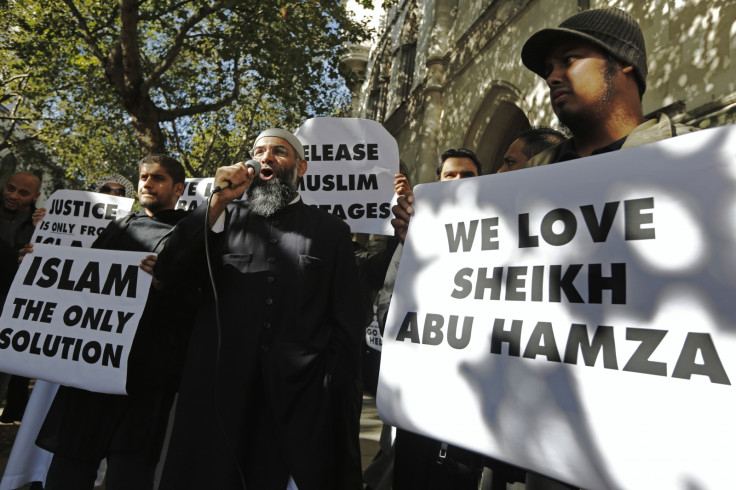How Islamic Extremist Anjem Choudary Could Join Isis But Return to UK Under 'Right to Family' Act

Anjem Choudary, the radical Muslim preacher, has allegedly revealed that he hopes to leave Britain to join the Islamic State (Isis) and would have done so already if police had returned his confiscated passport.
Choudary, 47, who has also lauded over the brutal killing of soldier Lee Rigby and Brit hostage Alan Henning, says he does not wish to break the law by travelling without a passport but he would like to leave the UK and renounce his British citizenship so he can do so too.
In light of the complex demands made by a notorious figure, IBTimes UK caught up with prominent immigration lawyer Aisha Choudhry (no relation to Anjem) to get the answers to the pertinent questions over immigration law in the UK.
Q: Anjem Choudary has said he would renounce his British citizenship in a bid to join IS, if he was guaranteed safe passage by the authorities. How easy / difficult is it for a British citizen to renounce their citizenship and actually, for someone with his background, would it be easier?
A: A British citizen can renounce their nationality (if they make the relevant application), but they can only do so if they have another citizenship or are about to obtain another citizenship after giving up their British status.
They must also demonstrate that they are aged 18 or over and of sound mind.
They can make a Declaration of Renunciation (RN) application (by using the RN form) with supporting documents which must include evidence of another country's citizenship or proposed citizenship.
If they meet the above criteria, they will receive a Declaration of Renunciation from the Home Office.
It is unclear whether Anjem Choudary is a dual national and whether he will be relying on another country's citizenship after renunciation of his British citizenship.
It is however interesting that Anjem Choudary has taken this approach; the Home Secretary has recently introduced powers to issue, withdraw or refuse passports to those who are acting against the public interest and public safety.
Perhaps he feels that his citizenship could be revoked imminently.
Please also note that a person who renounces British citizenship has a one-time right to resume that citizenship if the renunciation was necessary to enable him or her to keep or obtain some other citizenship.
Q: If he was successful in renouncing it, what would likely happen in terms of where he could live or reside?
A: It should be noted that renunciation affects only the status of the person making the declaration and does not affect the current status of any other member of his or her existing family.
This means that Anjem Choudary could later rely on his wife and children's nationality (provided they are British citizens) to re- enter the UK or make an application to re-enter the UK based on his Article 8 right, the right to a family life.
Q: Choudary told The Times that he would have already travelled to regions in Syria or Iraq, which are controlled by the jihadists if the police had returned his passport. How long can police confiscate a passport for? If he wasn't given back his passport – would this infringe his human rights on freedom for movement?
And, if not, why is that?
A: It is not clear to us on what grounds Anjem Choudary's passport was confiscated and the reasons provided by the Home Secretary to justify the confiscation.
Previously passports could only be withdrawn when a person's activities were deemed "demonstrably undesirable"
The decision to issue, withdraw, or refuse a British passport was at the discretion of the Secretary of State for the Home Department (the Home Secretary) under the Royal Prerogative.
The Home Secretary Theresa May has already exercised this power to prevent terror suspects from leaving the country since the beginning of the Syrian crisis.
May has recently introduced new legislation on confiscating and withdrawing passports of British nationals on the basis that they may seek to harm the UK or its allies by travelling on a British passport to, for example, engage in terrorism-related activity or other serious or organised criminal activity.
© Copyright IBTimes 2025. All rights reserved.






















